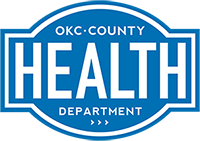Push Partners
PUSH PARTNER PROGRAM
Fires. Tornadoes. Floods. The Oklahoma City area is not immune to these threats and has faced some of them in the past. During a disaster, citizens frequently want to assist in the emergency response. But what about public health emergencies? Is there something members of the local community can do to help out in the case of a serious disease threat? The answer is yes!
The Cities Readiness Initiative (CRI) allows businesses and other local organizations to assist Public Health Officials in preparing and responding to potentially serious, even catastrophic, communicable disease threats to the community. The CRI was developed by the federal government following the anthrax attacks through the U.S. mail in 2001. Though these attacks were limited, experts say that a larger-scale aerial attack could be possible, spreading infectious anthrax spores and threatening the health of an entire metropolitan area. With this worst-case scenario in mind, the CRI has established the goal of delivering antibiotics to the entire population of Oklahoma County and other major metropolitan regions within 48 hours.


OCCHD has been tasked with developing procedures for the distribution, and will be aided by state and federal resources should an attack occur. In particular, a huge supply of pharmaceuticals would be made available through the Strategic National Stockpile program to ensure that enough medication could be mobilized rapidly and delivered to wherever it is needed. Even though the CRI program is based on a theoretical attack using anthrax, its principles can be applied to other public health threats for which an identified “countermeasure” (usually an antibiotic or a vaccine) is available and could be delivered in this manner.
To meet the CRI program objectives, OCCHD will need the help of many community partners. The primary method for mass medication delivery is called the “Pull Model”.
OCCHD has been tasked with developing procedures for the distribution, and will be aided by state and federal resources should an attack occur. In particular, a huge supply of pharmaceuticals would be made available through the Strategic National Stockpile program to ensure that enough medication could be mobilized rapidly and delivered to wherever it is needed. Even though the CRI program is based on a theoretical attack using anthrax, its principles can be applied to other public health threats for which an identified “countermeasure” (usually an antibiotic or a vaccine) is available and could be delivered in this manner.
To meet the CRI program objectives, OCCHD will need the help of many community partners. The primary method for mass medication delivery is called the “Pull Model”.

The “pull” dispensing strategy involves opening Point of Dispensing (POD) sites to “pull” the general public to antibiotic dispensing locations. Pre-identified PODs will be located throughout the county and will be operated by OCCHD staff and volunteers. Medications (i.e., antibiotics, vaccine) will be free to the public.
Operation of a large number of POD sites would require many more resources than are currently available. This is where corporate partners come in. The concept of the “Push Partner” approach is to take advantage of businesses and other organized settings to receive medication from Public Health authorities and distribute it to employees, employee family members and other clientele. Again, medication is provided free to these organizations. As you can see, both the pull and push strategies will be used simultaneously to rapidly dispense medication throughout the county.

WHAT DOES YOUR ORGANIZATION GAIN BY BECOMING A PUSH PARTNER?
- Helps OCCHD serve more people in less time, thereby reducing morbidity and mortality associated with a bioterrorism event.
- Provides a valuable and appreciated service to your employees and others.
- Added assurance that your employees will come to work instead of going to a POD, thus improving your continuity of operations.
In other words, health officials will have determined that the need to get lifesaving medication to people at risk will outweigh the small potential for adverse reactions that might have been avoided under ordinary circumstances with the usual safeguards.
